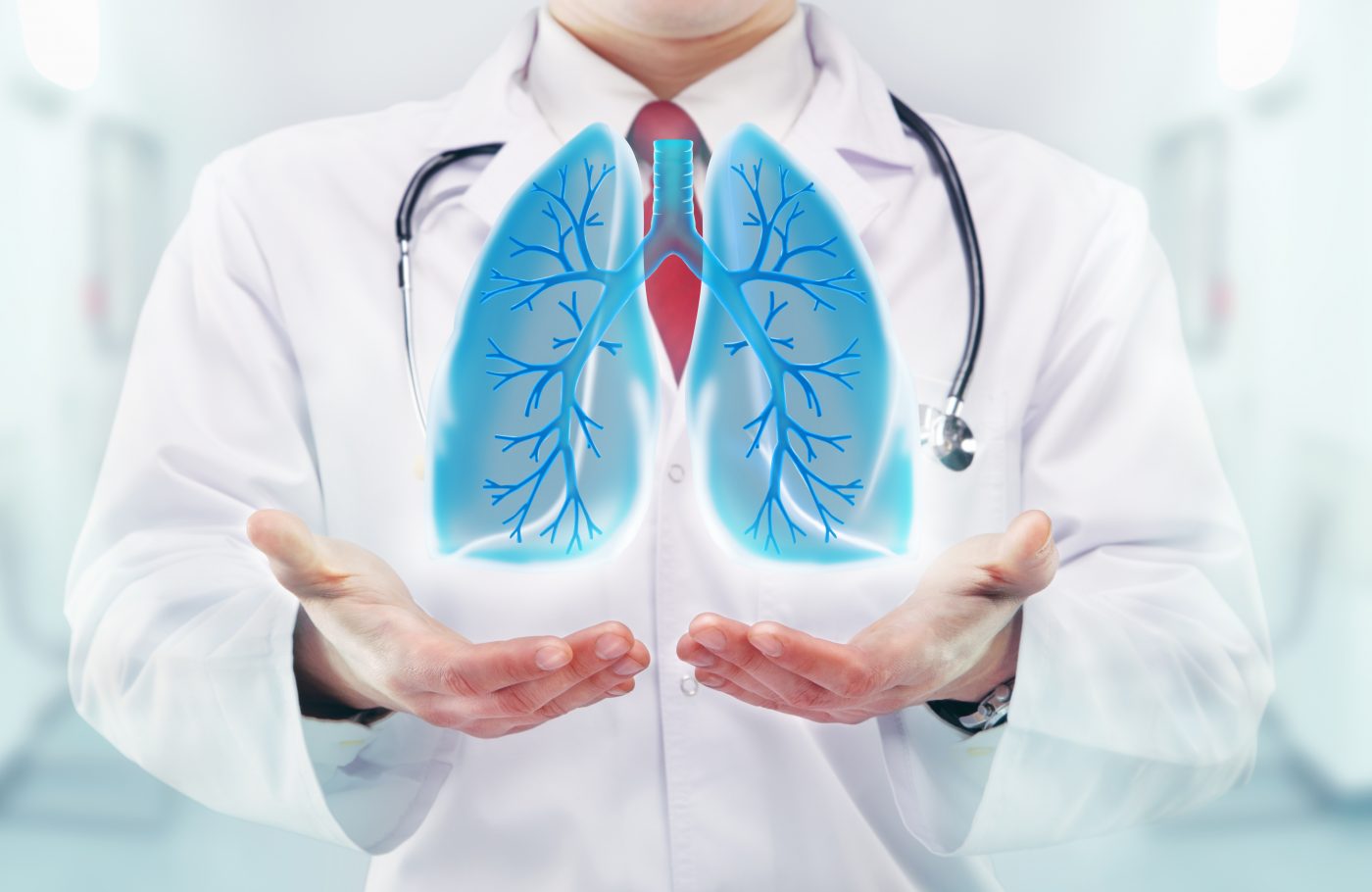Green Tea Extract Seen to Stop Fibrotic Processes of IPF in Small Study
Written by |

Taking oral dietary supplements of epigallocatechin-3-gallate (EGCG) — an antioxidant in green tea — may stop and reverse the pro-fibrotic (scarring) state of the lungs of people with idiopathic pulmonary fibrosis (IPF), a small study suggests.
These early findings support larger studies of EGCG’s anti-fibrotic potential in IPF, which if confirmed, would place EGCG as a therapy candidate for this patient population.
The study, “Reversal of TGFβ1-Driven Profibrotic State in Patients with Pulmonary Fibrosis,” was published in the New England Journal of Medicine.
EGCG is the main catechin in green tea, and widely considered to be its key active component. Catechins are a group of compounds highly present in tea, cocoa, and berries with powerful antioxidant properties.
Antioxidant molecules can protect cells against oxidative stress, an imbalance between the production of potentially damaging molecules called free radicals and the ability of cells to detoxify them. Oxidative stress is associated with a number of disease processes.
In addition to its antioxidant effects, EGCG is suggested to have anti-inflammatory, neuroprotective, and anti-cancer properties, leading to multiple preclinical and clinical studies evaluating EGCG as a potential treatment for conditions such as neurodegenerative diseases, heart disease, and cancer.
Interestingly, EGCG was also shown to irreversibly block the activity of receptors of transforming growth factor-beta 1 (TGF-beta 1) — a key pro-fibrotic mediator — and LOXL2, also involved in fibrosis, specifically in fibroblasts (cells involved in tissue repair and fibrosis). This blockage results in the suppression of TGF-beta 1-induced fibrosis.
Based on these data, a team of researchers at the University of California, San Francisco, University of California, Davis, and Pliant Therapeutics, evaluated the effects of EGCG supplements on the levels of a number of fibrosis-associated molecules in lung tissue and blood of IPF patients.
The study involved 20 people with IPF who were scheduled to undergo a lung biopsy. Patients had reduced lung function, with a mean 70% of the total volume of air that can be forcefully exhaled (forced vital capacity), and a mean 55% of the predicted lung gas exchange capacity (diffusing capacity for carbon monoxide).
Half were given oral capsules of EGCG (from Teavigo) at a daily dose of 600 mg for 14 days before the biopsy, while the other half were not (untreated group). Tissue from five healthy lungs were analyzed as controls.
Researchers measured the lung levels of proteins involved in fibrotic processes, namely fibronectin, type 1 collagen, alpha smooth-muscle actin (alpha-SMA), Snai1, SMAD3 (activated by TGF-beta 1), and activated SMAD3.
Data showed that the levels of all fibrosis-associated molecules were higher in untreated IPF patients, compared with controls. This increase was not statistically significant only for alpha-SMA and SMAD3.
Notably, patients given EGCG supplements showed a normalization of the levels for all proteins tested, suggesting a reversion of the lung’s pro-fibrotic state.
In agreement with TGF-beta 1-induced production of collagen (a structural protein used to form a matrix that allows healing and scarring), the team found an association between the levels of activated-SMAD3 and collagen type 1 in all three groups of participants.
Researchers also looked at blood levels of two biomarkers of IPF progression — cartilage oligomeric matrix protein (COMP) and periostin — before and after ECGC treatment.
After 14 days of EGCG daily supplements, patients showed a significant drop in levels of both biomarkers in their blood, which the team noted is not typically seen with currently approved IPF treatments.
These findings suggest that EGCG supplements have anti-fibrotic effects in IPF patients, supporting “the performance of a long-term, randomized clinical trial of ECGC involving patients with this condition,” the researchers wrote.
Three of the study’s 17 co-authors are employees of Pliant Therapeutics, a South San Francisco-based company focused on the development of therapies for several fibrotic diseases based on their expertise with TGF-beta 1.





